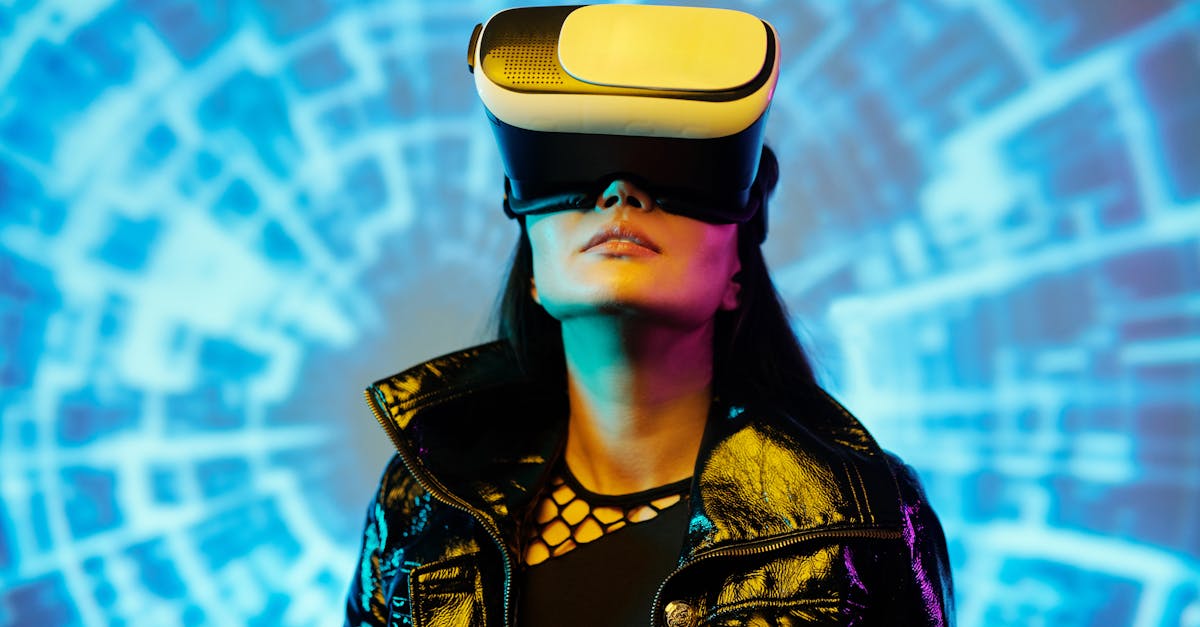Exploring the Metaverse Future
Introduction
The metaverse has been a buzzword in tech circles, heralding a new era of virtual realities. Stemming from science fiction, it's evolving into a palpable experience. The metaverse comprises interconnected digital spaces offering limitless interaction possibilities. It's not just about gaming; the metaverse redefines social interaction, work, and entertainment. Major tech giants are investing heavily, sparking innovation races. What's next in this virtual frontier? Let's explore the technologies, challenges, and future trajectories of the metaverse.
Advertisement
Evolution of Virtual Worlds
The concept of the metaverse isn't entirely new; it has roots in early virtual reality games and environments. Second Life, launched in 2003, allowed users to create avatars, socialize, and engage in a digital economy. Its success inspired further innovations, leading to more immersive platforms like VRChat and Fortnite. These early iterations offered glimpses into what a fully fleshed-out metaverse might entail, providing social experiences that transcended physical boundaries. As technology advances, these virtual worlds are becoming increasingly sophisticated, foreshadowing an era where digital and reality seamlessly blend.

Darlene Alderson/Pexels
Advertisement
Technological Foundations
For the metaverse to realize its full potential, several technologies must converge. At the forefront are advancements in virtual reality (VR) and augmented reality (AR), offering users immersive experiences. High-speed internet, like 5G, ensures low-latency interactions. Additionally, blockchain technology is crucial for secure transactions and digital asset ownership. This technological symbiosis creates a foundation for a decentralized metaverse. As these tech pillars strengthen, the possibilities for interactive and personalized virtual worlds expand, promising more nuanced and engaging digital experiences.
Advertisement
Economic Implications
The metaverse introduces transformative economic opportunities. Digital art, represented by NFTs (Non-Fungible Tokens), is reshaping creative industries, allowing artists unique monetization channels. Virtual real estate is another burgeoning sector, where 'land' in the metaverse sells for millions, as seen in platforms like Decentraland. Retail experiences are being reimagined, too, as brands host virtual stores offering interactive shopping experiences. As these economic models gain traction, the metaverse could redefine traditional commerce and asset ownership, fostering a new digital economy.

Lukas/Pexels
Advertisement
Impact on Social Dynamics
Virtual worlds promise new social interaction paradigms, overcoming geographic boundaries. Users can form communities based on shared interests or goals, leading to diverse social ecosystems. The metaverse allows personalized digital identities, fostering inclusivity and exploration of identity. However, concerns around privacy, data ownership, and digital wellbeing persist. Facilitating harmonious social environments while addressing these challenges is crucial as stakeholders work towards an ethical and inclusive digital future.

Ketut Subiyanto/Pexels
Advertisement
Challenges and Limitations
Despite its promise, realizing a cohesive metaverse faces hurdles. Interoperability between differing platforms is a significant concern. Ensuring seamless user experiences across competing virtual spaces is crucial. Privacy and data protection are ongoing issues, demanding robust frameworks to safeguard user information. Accessibility, too, is vital, ensuring equitable experiences for users regardless of socioeconomic status. Addressing these challenges requires collaborative efforts from technology developers, policymakers, and communities, ensuring the metaverse’s promise is inclusive and secure.

Mikhail Nilov/Pexels
Advertisement
Educational Potential
Virtual spaces in the metaverse hold immense educational potential. They offer students immersive learning environments, transcending traditional classroom constraints. Concepts can be visualized interactively, meeting diverse learning needs. Institutions are already experimenting with virtual campuses and labs as part of educational reforms. This shift could democratize learning, providing global access to quality education resources. As virtual learning environments evolve, they may play an instrumental role in shaping future educational landscapes and philosophies.

Vanessa Loring/Pexels
Advertisement
The Role of Major Corporations
Tech giants like Meta (formerly Facebook), Google, and Apple are pivotal in developing the metaverse. These companies are investing heavily in VR and AR, with Meta leading initiatives for a comprehensive metaverse ecosystem. Their involvement spurs innovation but also raises concerns about monopolistic tendencies. The balance between corporate interests and a decentralized metaverse—a domain open to creative and economic participation for all—is crucial. This will require regulatory oversight to ensure a fair and open virtual world.

cottonbro studio/Pexels
Advertisement
Possible Future Trajectories
The metaverse is poised at exciting crossroads with numerous potential pathways. We may see a decentralized, user-driven space thriving with open APIs and community contributions. Alternatively, branded universes could dominate, dictating user experiences with commercial interests. The advent of AI-driven virtual worlds offers another avenue, replete with personalized digital ecosystems and narratives. The trajectory will likely reflect the broader interplay between innovation, user choice, and societal values. The coming decade promises transformative trends shaping our digital and real-world interactions.

Nataliya Vaitkevich/Pexels
Advertisement
Conclusion
The metaverse promises to redefine how we interact, work, and entertain ourselves. As we stand on the brink of this virtual universe, the potential is vast but accompanied by significant challenges. Its progression will depend on technological advances, ethical considerations, and balancing corporate and communal interests. Regardless of how it evolves, one thing is certain: the metaverse will significantly impact cultural, economic, and social paradigms worldwide. As society embarks on this digital journey, thoughtful collaboration will be key to realizing the metaverse's full potential.

Ann H/Pexels
Advertisement
